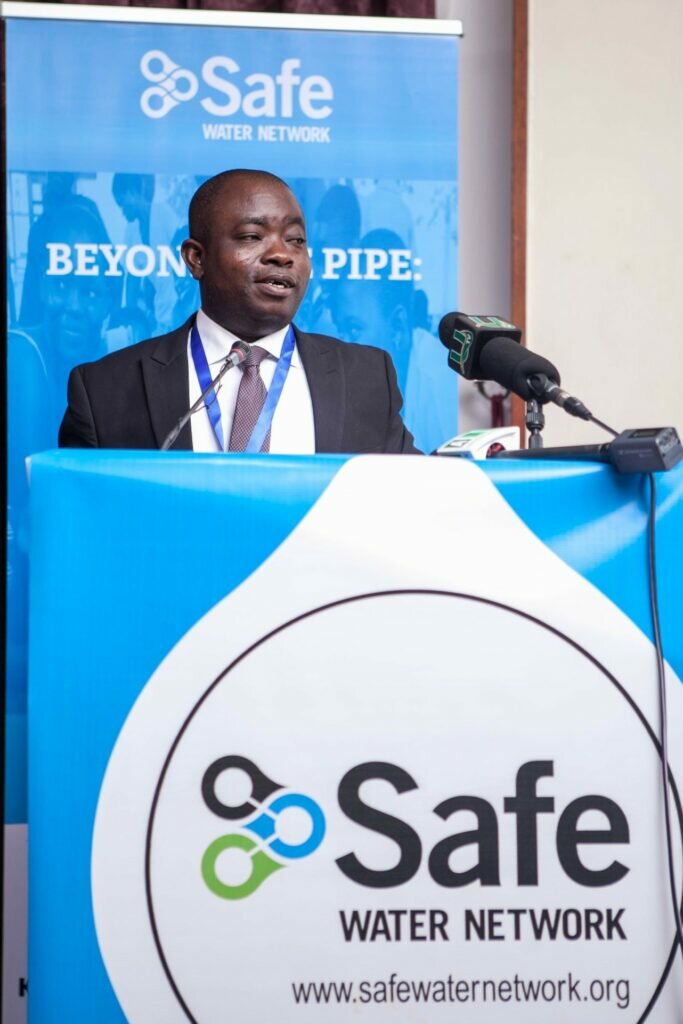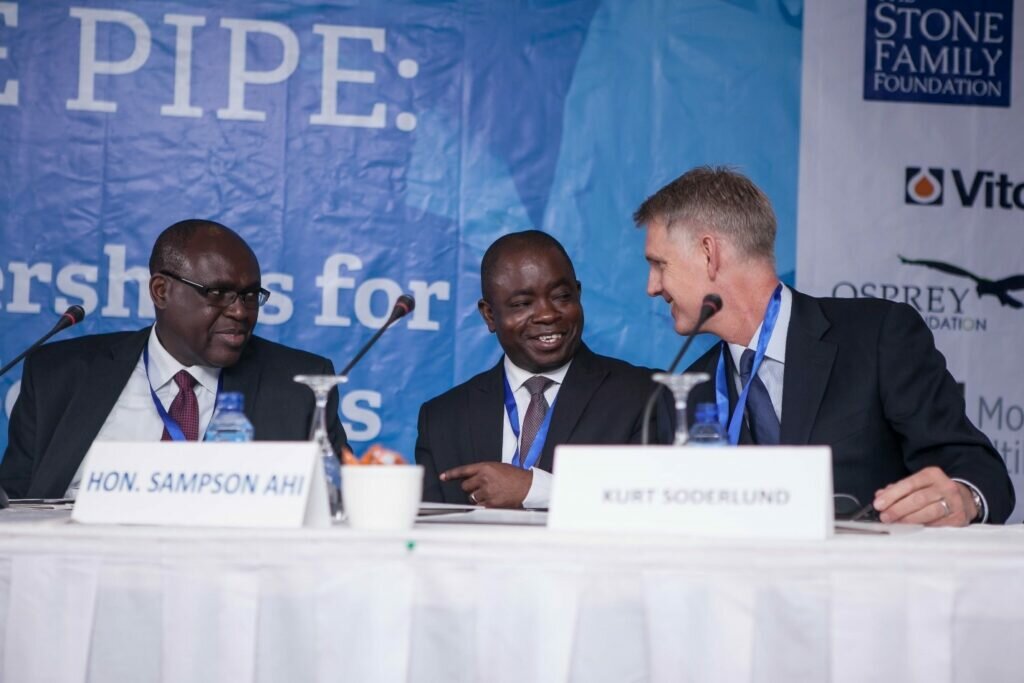Safe Water Network Ghana hosted its fourth annual ‘Beyond the Pipe’ forum on Wednesday, March 16th at the Holiday Inn at Airport City in Accra.
Despite achieving the Millennium Development Goal target for water, some 8 million people in Ghana lack reliable safe water access. Ghana faces a funding gap to improve water access and has prioritized opportunities such as public-private partnerships (PPPs) to help address the gap.
In his keynote address, Hon. Sampson Ahi, Deputy Minister of Water Resources, Works and Housing, underscored the achievements of the Ghana Government along with all sector stakeholders in increasing safe water access, culminating in the eradication of some water-related diseases including guinea worm. “With an appropriate policy framework, consistent investment, institutional structures and with innovative partnerships by the public and private sectors, we can accomplish the government’s objectives for affordable, safe water for everyone,” stated the Deputy Minister.

Hon. Sampson Ahi (MP), Deputy Minister for the Ministry of Water Resources, welcomes participants to the 2016 Beyond the Pipe Forum.
Charles Nimako, Ghana Country Director, Safe Water Network opened the day emphasizing the Ghana Water Enterprise Trust, a proposed funding mechanism to address the financing gap for off-grid community water systems and improve financial stewardship for a portfolio of water Stations. Nearly 80 participants from the Ghana water sector joined in the discussion on the proposed fund’s governance, legal and regulatory framework, and risk mitigation.
The discussion was brought to life with a presentation on the design for a PPP pilot project in Danfa, for which funding commitments have been made from a private sector entity and the local government authority. The community is a strong candidate for a PPP pilot that expands the existing water provision infrastructure given relatively high population density; an average of per person income of GHS 12 (USD 3) per day; access to grid power; rapid urbanization; and experience in paying for water.
Mr. Emmanuel Gaze, Director of Technical Services at Ghana’s Community Water and Sanitation Agency (CWSA) emphasized the role of CWSA in regulating the sector, noting that although PPPs are critical in order to meet existing demand for water services, “an appropriate regulatory mechanism will ensure transparency, compliance with sector standards and accountability.”
Contributing to the discussion, Elsie Appau, Water Governance Specialist of the Embassy of the Kingdom of the Netherlands, said “a lot of donors in the water sector are folding up and this calls for innovative ideas to sustain the gains and drive the sector forward. PPPs offer a tremendous opportunity to leverage additional resources to provide sustainable water service.”
This effort builds on the recommendations to promote private sector engagement put forth by the PPP Working Group led by Ghana’s Ministry of Finance, at last year’s Beyond the Pipe Forum. The next steps are to further develop the Trust with government and private sector stakeholders, and to complete signing of agreements and securing permits for the Danfa project to kick off in Q3 of 2016.
Charles Nimako thanked our project sponsors: the Conrad N. Hilton Foundation; Embassy of the Kingdom of the Netherlands; Stone Family Foundation, Newman’s Own Foundation; Vitol Foundation; KOSMOS Energy; Osprey Foundation; PepsiCo Foundation; and GSMA Foundation as well as our forum sponsors; Ecobank; Interplast; and Polytank.
Caroline Sheldon, Market Engagement Manager, Mobile for Development Utilities Programme, recently posted about the Forum and WASHfunders posted a guest blog by Safe Water Network’s Ghana Country Director Charles Nimako.

Charles Nimako, Country Director, and Kurt Soderlund, CEO, Safe Water Network, talk with Hon. Sampson Ahi (MP), Deputy Minister for the Ministry of Water Resources, at the opening session.
The Ghana Water Enterprise Trust is a proposed funding mechanism Safe Water Network is developing with government and private sector stakeholders to attract capital to support future expansion of off-grid small water community water stations in Ghana and improve financial stewardship of these stations.
The public-private Partnership (PPP) pilot will upgrade a water system in Danfa in collaboration with the community, local government and a private sector service provider to demonstrate the potential for a proposition that will improve access to a reliable supply of safe water.
The discussion with the panel and audience raised the following key areas to consider as we move these initiatives forward:
Related links: